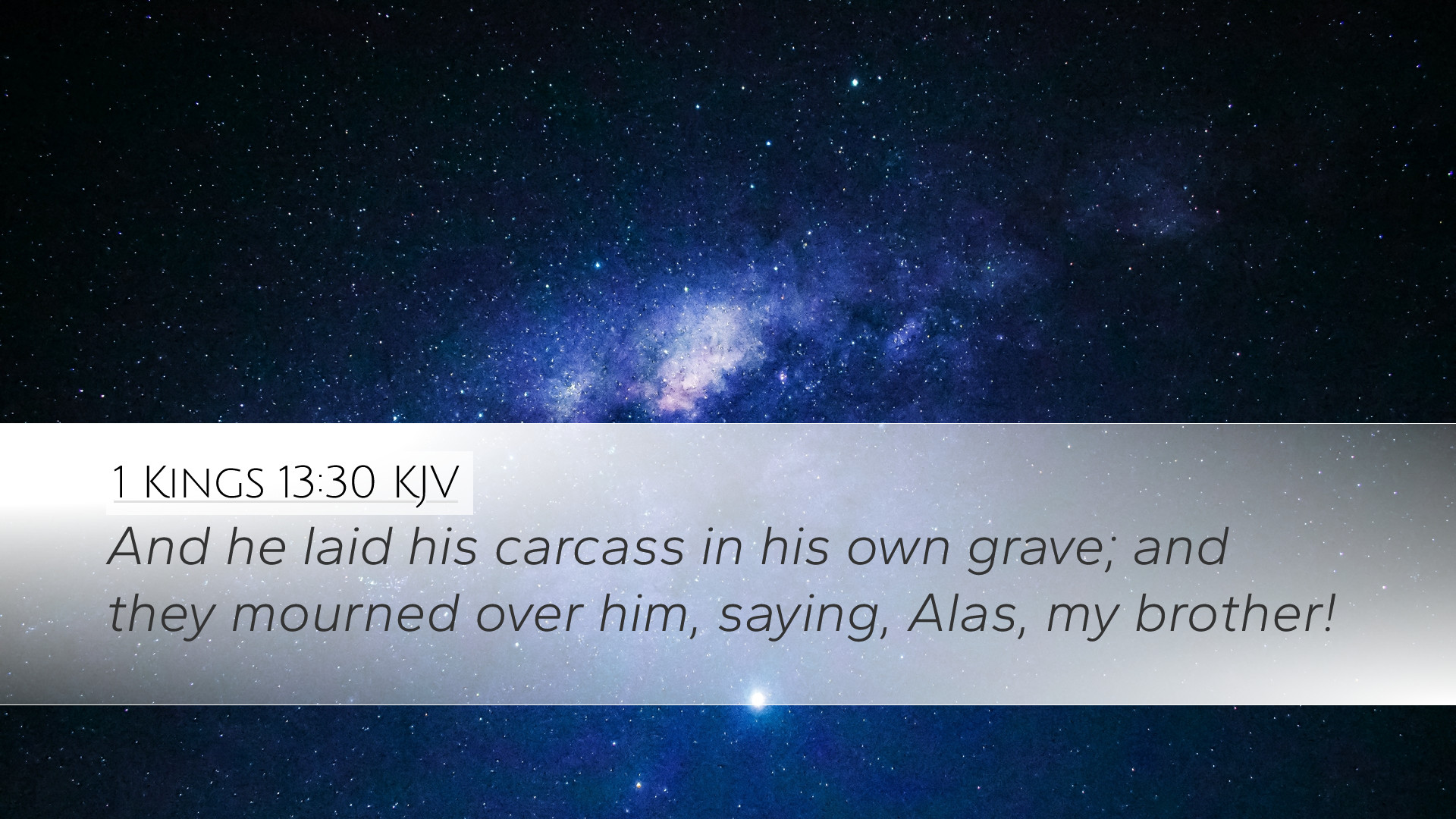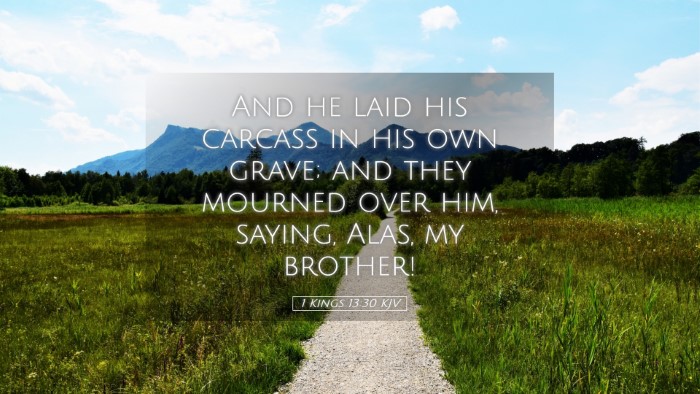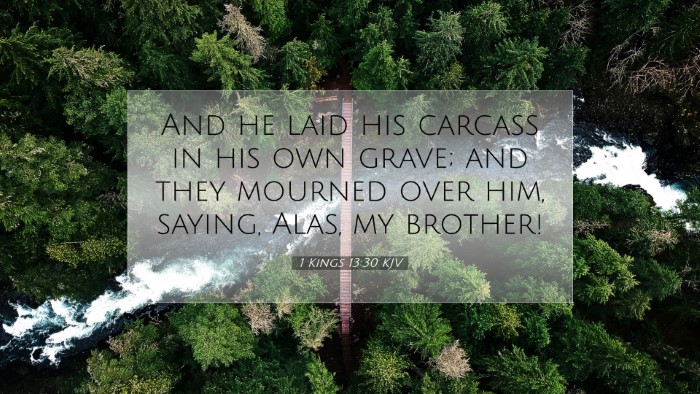Old Testament
Genesis Exodus Leviticus Numbers Deuteronomy Joshua Judges Ruth 1 Samuel 2 Samuel 1 Kings 2 Kings 1 Chronicles 2 Chronicles Ezra Nehemiah Esther Job Psalms Proverbs Ecclesiastes Song of Solomon Isaiah Jeremiah Lamentations Ezekiel Daniel Hosea Joel Amos Obadiah Jonah Micah Nahum Habakkuk Zephaniah Haggai Zechariah MalachiVerse
1 Kings 13:1 1 Kings 13:2 1 Kings 13:3 1 Kings 13:4 1 Kings 13:5 1 Kings 13:6 1 Kings 13:7 1 Kings 13:8 1 Kings 13:9 1 Kings 13:10 1 Kings 13:11 1 Kings 13:12 1 Kings 13:13 1 Kings 13:14 1 Kings 13:15 1 Kings 13:16 1 Kings 13:17 1 Kings 13:18 1 Kings 13:19 1 Kings 13:20 1 Kings 13:21 1 Kings 13:22 1 Kings 13:23 1 Kings 13:24 1 Kings 13:25 1 Kings 13:26 1 Kings 13:27 1 Kings 13:28 1 Kings 13:29 1 Kings 13:30 1 Kings 13:31 1 Kings 13:32 1 Kings 13:33 1 Kings 13:34

